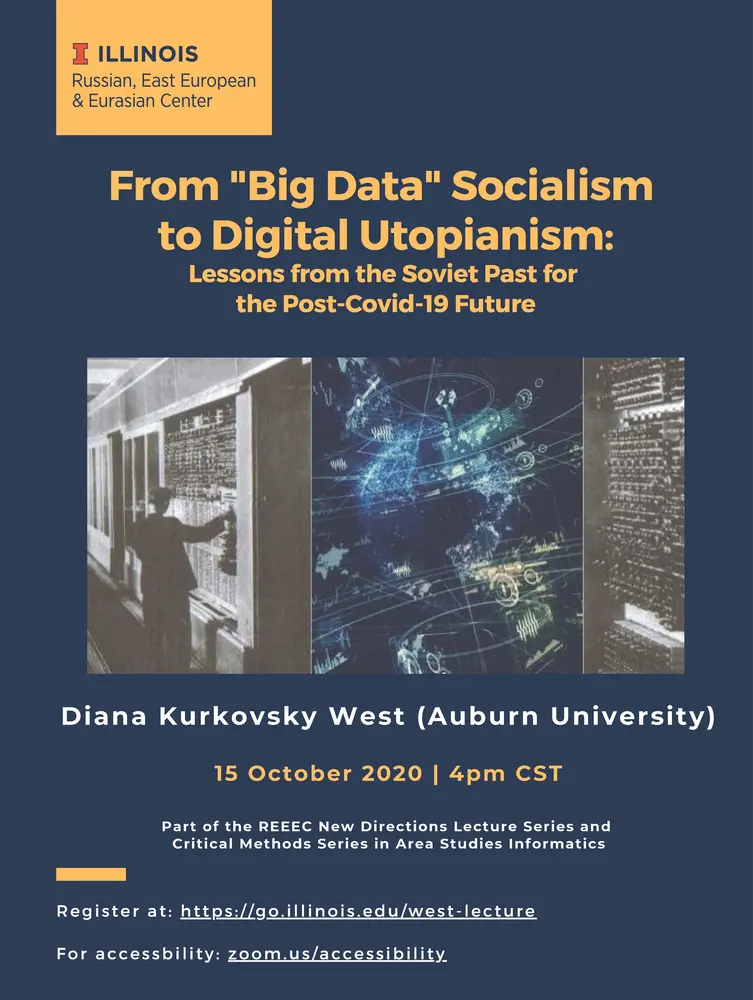
By Jamie Hendrickson (MA Student, REEES)
As a part of the REEEC Critical Methods Series in Area Studies Informatics, on October 15 Diana Kurkovsky West gave an online lecture entitled: “From ‘Big Data’ Socialism to Digital Utopianism: Lessons from the Soviet past for the post-Covid-19 future.” West, currently a visiting lecturer of history at Auburn University, focuses her current research on the history of Soviet cybernetics and central planning, the likes of which her upcoming book on the subject will delve into and explore. Her autumnal lecture on Thursday, therefore, served both to introduce attendees to her research and receive their feedback on aspects of her book that are still works-in-progress.
Central to West’s talk were the ideas of what exactly can constitute “Big Data,” and West’s self-coined term CyberSovietica.
Regarding “Big Data,” West started off by stating that most members of society are afflicted with an incorrect illusion that the ever-present modern “immateriality of data” is run by cheap and/or free production. This illusion is more a condition of not just Neoliberal “Big Data” but Socialist “Big Data,” which West argues has two sides.
The first side of Socialist “Big Data” can be described with such trends as: central planning is monitored and run via feedbacks and data is used to steer the economy and/or all production and to anticipate and produce all human needs. The second side, which West argues we hear less of, is essential to all sorts of universal processes such as political critique, positivism, and idealism. This train of thought is exactly what West is focusing her research skills on for her upcoming book—the notion that data and information reveal the natural order of the universe and that the universe is algorithmic in nature; everything is connected to everything, and it can only be understood in these terms. The second side of Socialist “Big Data” is the heart of West’s CyberSovietica— which encompasses and represents the history of Soviet “Big Data” socialism and digital utopianism.
West eventually shifted the conversation to a shorter discussion of how our current circumstances have prioritized accessible online services more than ever, with data comprising an essential aspect of their functioning. West also made the point that the newfound accessibility of some services, take contactless Uber Eats deliveries or free online yoga classes, showcases a previous hesitation by the market to make all things possible digitally accessible. The world now has a labor market capable of limiting in-person contact with its consumers through the data that runs it. Data, West concluded, is embedded into our labor markets, our social inequalities and circumstances, and how our labor markets produce those social inequalities and circumstances.
West wrapped up her lecture by taking audience questions, with REEEC Director John Randolph serving to close the talk.
Jamie Hendrickson is a graduate student in Russian, East European, and Eurasian Studies at the University of Illinois Urbana-Champaign.